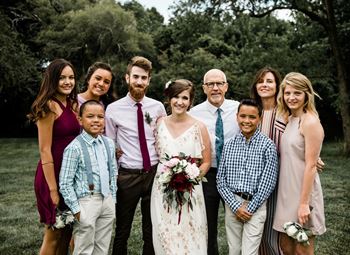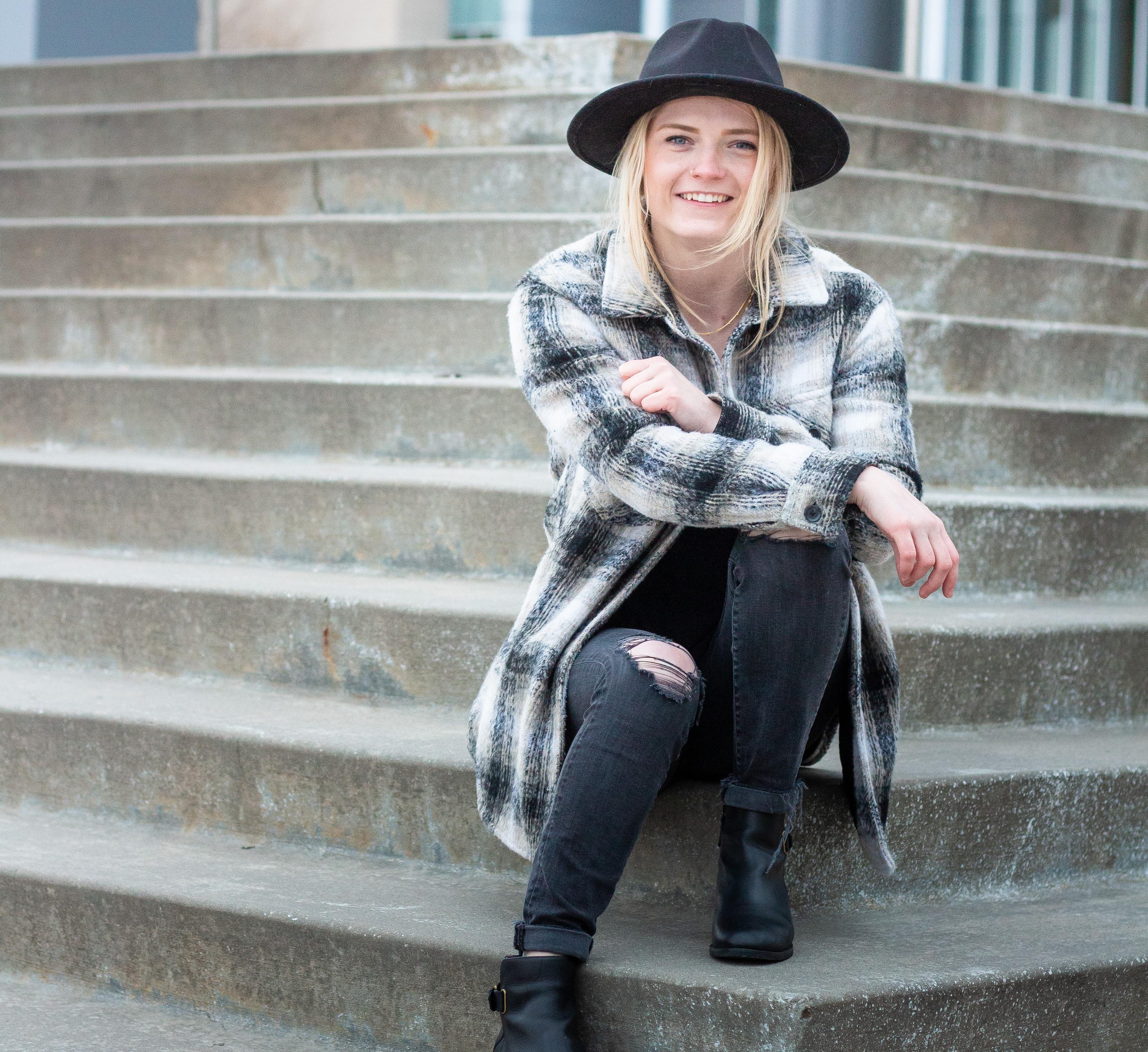By Vicky Leitnaker
Youth in foster care often hear again and again, “I don’t want you. I don’t want you. I don’t want you.” Rejection is a key component of experienced trauma. Despite the odds, some exhibit remarkable resilience. Resilience is the process of adapting well in the face of adversity, trauma, tragic threats, or significant stress. Cornerstones of Care team member Makaila's story is one of forgiveness, acceptance and extraordinary resilience.
Makaila entered foster care at age three, along with her seven-year-old sister and eleven-year-old brother. Her parents had a history of addiction and alcoholism and were unable to care safely for the children. Makaila has no memory of her earliest years.
When the children were removed from their home they were placed with their aging grandmother temporarily. After connecting with a couple from the church she attended, Makaila’s grandmother made arrangements for them to adopt the siblings. Makaila and her siblings knew the family and were happy to have a roof over their heads and someone to call mom and dad.
For the next ten years, Makaila lived with her adoptive parents. Her grandmother passed away when she was eleven. Throughout those years, Makaila and her siblings suffered abuse at the hands of their adoptive parents. Several times child protective services were called but the children didn’t have physical marks and they were afraid to tell the truth. When Makaila was 13 her older sister went to a school counselor and told the counselor what was happening in the home. That same day Makaila found herself in a room with a detective and later was removed from the home she’d lived in much of her life. Facing charges, her adoptive parents said “We don’t want them anymore.” All Makaila heard was, “You’re unlovable.”
After spending three days in a group home, then in temporary placement, Makaila moved in with family friends. It was not intended to be a permanent living situation. Not long after, Makaila’s sister turned 18 and ventured out on her own.
 Then Makaila’s life took an unexpected turn. At 16, she was introduced to a couple who later adopted her. “Meeting them was the most incredible thing”, Makaila said. Adoption for the second time turned out to be the home Makaila deserved and always longed for.
Then Makaila’s life took an unexpected turn. At 16, she was introduced to a couple who later adopted her. “Meeting them was the most incredible thing”, Makaila said. Adoption for the second time turned out to be the home Makaila deserved and always longed for.
Makaila’s new parents supported her through high school, graduation and entry into college at Kansas State University. She graduated in May 2019 with a Bachelor of Social Work degree. During her freshman year, Makaila’s biological mother reached out. Makaila carefully considered this invitation and knew it wasn’t the right time in her life to make this connection.
Shortly after graduation, her biological mother contacted her again and let both Makaila and her sister know she was dying of cancer and had a short time to live. They decided to make the trip to Nebraska to say goodbye. Makaila wanted to let her mother know she was okay. Encouraged over the years by positive mentors, who recognized her maturity, she found closure regarding her biological parents when she was just 13. Makaila understood that addiction is powerful and life can be hard. She wanted her mom to know she forgave her. A woman of faith, Makaila hoped also to tell her mom it’s never too late to “have a relationship with Jesus.” Sadly, her biological mother died the night before the meeting.
Makaila is now in her early twenties and works on our team as an interstate compact placement (ICPC) specialist. In this role, she connects children in foster care from other states with relatives who live in the Kansas communities we serve. After assessing the home and family, she makes the introduction and conducts monthly supervision. Makaila feels supported by her team and loves connecting children with their relatives.
“It’s a joy working with these families,” Makaila expressed.
A career in foster care is never easy but Makaila is inspired to keep going knowing the kids she works with are coming to safe and stable homes. “They lost their childhood like I lost my childhood”, Makaila shares. “They deserve to stay connected with biological families and to have a voice.” Makaila has strong feelings about the social worker/client relationship. “Trust is key,” she says. With her history of not telling social workers the truth about her adoptive home environment, Makaila hopes kids can trust their social worker enough to tell the truth.
Today Makaila’s life is full. She enjoys rock climbing, reading, hiking and being in the outdoors. Her relationship with her adoptive parents remains strong. She enjoys time spent with them and her seven adoptive siblings and continues to have a close relationship with her biological sister.
Makaila has learned over time to share more and be herself. Because of her history of feeling rejected again and again she has adopted a “perfection mask” so they won’t leave. In 2020 she started being honest with her adoptive parents about her insecurities and the truth behind the “mask”. After sharing this she saw their relationship strengthen. It was a “freeing” experience.
Makaila attributes much of her resiliency to safe, caring adults in her life. She still spends time each month with the CASA volunteer who was assigned to her as a child. During her childhood she spent many weekends with her pastor and his wife who committed their time making her feel loved and safe. Makaila believes mentors “make all the difference”.
“I had amazing, supportive adults in my life. I was so lucky.” Makaila shared. She hopes to continue mentoring children herself to let them know,
“The world is so beautiful.”
Learn more about becoming a foster parent and adoption services here.



